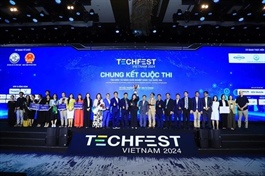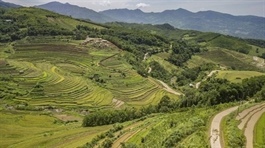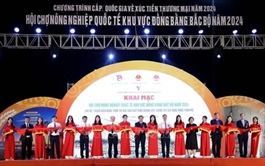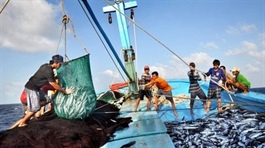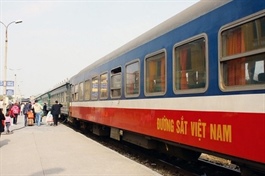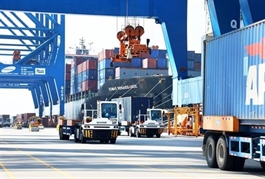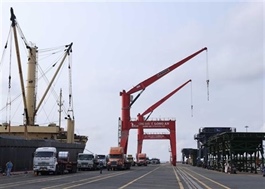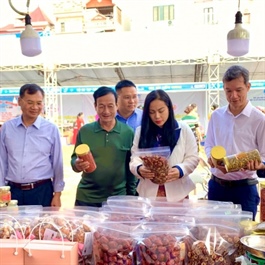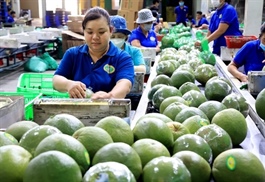Hanoi advocates traceability for safe food
Hanoi advocates traceability for safe food
Hanoi continues to implement advanced quality management processes in collaboration with various agencies and local authorities.
Hanoi has partnered with various localities to provide training, transfer scientific knowledge, and develop large-scale production areas aimed at promoting the production of high-quality, traceable agricultural products.
Promoting effective and safe models
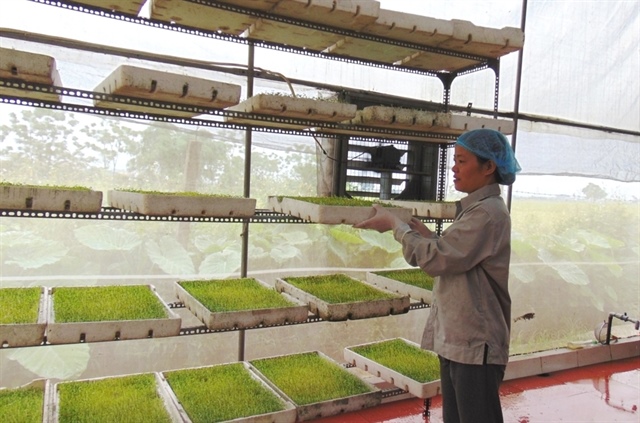
Growing seedlings at Thanh Ha Agricultural Production and Service Cooperative, Thuong Tin District. Photo: Lam Nguyen/ The Hanoi Times |
Founded in 2013, the Thanh Ha Agricultural Production and Service Cooperative focuses on high-tech vegetable farming in response to Hanoi residents' demand for safe food, according to the cooperative's director, Bui Thi Thanh Ha.
To guarantee safe and high-quality veggies, the cooperative has created a closed supply chain of organic products that complies with VietGAP regulations. The cooperative's 1.15 hectares under high-tech vegetable production have two cold storage facilities, an automated irrigation system, and about 8,000 square meters of agricultural greenhouses.
Meanwhile, Thanh Tri District has also embraced high technology to provide safe food. Since 2017, the Duc Phat Hi-tech Agricultural Cooperative has specialized in hydroponic vegetable production, implementing Israeli technology for high economic efficiency and food safety.
Since the beginning of 2023, Duc Phat Hi-tech Agricultural Cooperative has completely switched from producing clean vegetables to cantaloupes, earning nearly VND150-160 million (US$5,894-US$6,287) per harvest, according to Nguyen Manh Hong, Director of the cooperative. Hong said this high-tech farming method boosts the brand's growth and competitiveness in the market, in addition to helping with disease management.
Hanoi currently has more than 5,000 hectares of safe vegetables, including 43 models using the Participatory Guarantee System (PGS), covering a total area of 1,700 hectares, according to Nguyen Thi Thu Hang, Director of the Hanoi Sub-Department of Agro-Forestry and Fisheries Quality Management under the Hanoi Department of Agriculture and Rural Development.
She said that the city has more than 1,300 hectares of vegetables, fruits and tea certified VietGAP standards, along with 181 hectares of aquaculture and 88 livestock farms meeting these standards. In addition, nearly 50 hectares are under organic farming while 285 high-tech agricultural models in operation.
The city has 159 supply chains in place for the production and consumption of safe agricultural products, Hang said.
"Producing safe food not only allows local farmers to sell their products at prices 10-15% higher than those grown in traditional methods, but also helps regulatory agencies manage quality and food safety," the director said. "If non-compliances are found during inspections, the authorities can trace the origin of the products and take legal action if necessary."
Ensuring food safety from farm to fork
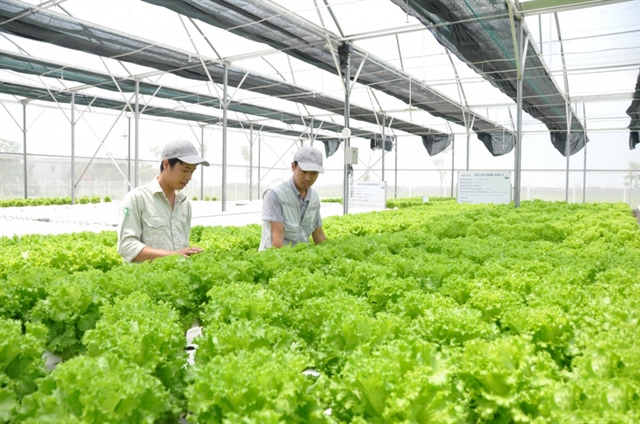
A safe vegetable farm in the Thuong Tin District. Photo: Ngoc Anh/The Hanoi Times |
Nguyen Hung Thinh, Director of the Phuc Tho Agricultural Service Cooperative in Phuc Tho District, emphasized the need for various departments to advise the city on policies to support safe agricultural production. This includes providing technical assistance and loans to producers to expand their operations and build supply chains.
He urged these agencies to organize trade fairs that facilitate contracts between companies and producers, while promoting a shift in consumer behavior toward clean and safe food.
According to Bui Cong Than, Deputy Chairman of the Thuong Tin District People's Committee, the district is planning and developing agricultural production areas, including zones meeting VietGAP standards, to control the quality of agricultural, forestry, and fishery products from production to consumption.
"We are asking local authorities to support farmers to commit to producing goods with clear origins," he said. "We also disseminate government regulations on food safety and encourage food production and business facilities to implement safety measures."
In addition, the authorities are stepping up inspections of food production and processing facilities, including livestock and poultry slaughterhouses, to strictly address any breaches in food hygiene and safety, Than said.
Prioritizing food safety in Hanoi
Nguyen Dinh Hoa, Deputy Director of the Hanoi Department of Agriculture and Rural Development, said that food safety and hygiene are receiving increased attention from society so violations would harm the brand of Vietnamese goods and result in large financial losses.
With this in mind, the city is strengthening its management of agricultural inputs and the safety of agriculture, forestry and fisheries products. The city also recognizes exemplary models of safe food production and processing, while publicly naming individuals and organizations failing to comply with food safety regulations.
"In addition, the department continues to work with various agencies and localities to promote the production and consumption of safe agricultural products and to implement advanced quality management processes," said the deputy director.
The department is adopting chain production models and safe food distribution systems, and plans to strengthen cooperation with other provinces and cities to link the production and consumption of safe, traceable products, Hoa said.
|
Hanoi develops food safety streets to boost consumer confidence After six years of implementation, the city has established 20 safe food streets in 16 districts, with 873 businesses participating. The Hanoi Food Safety and Hygiene Department works with the Women's Union, the Farmers' Union, and various local agencies to train food business owners and consumers on safe food production and traceability. Municipalities are also encouraged to increase the number of streets where eateries meet the Safe Food Street standards. In addition, local governments are tasked with raising public awareness and requiring businesses to commit to implementing safety measures in the production, processing and sales of food. The establishment of safe food streets is critical to regularizing food service operations and promoting consumer confidence in food safety. The model protects public health and enhances the reputation of local food, promoting the city's food safety landscape. |



